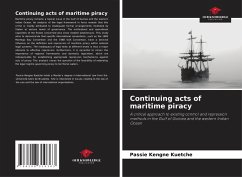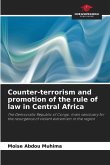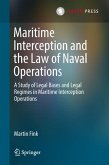Maritime piracy remains a topical issue in the Gulf of Guinea and the western Indian Ocean. An analysis of the legal framework in force reveals that this crime is mainly attributed to inadequate formal arrangements instituted by States at various levels of governance. The institutional and operational capacities of the States concerned also show notable weaknesses. This study aims to demonstrate that specific international conventions, such as the 1982 Montego Bay Convention and the 1988 SUA Convention, have a decisive influence on the definition and repression of maritime piracy within national legal systems. The inadequacy of legal texts at different levels is thus a major obstacle to effective repression. Furthermore, it is essential to stress the importance of regional frameworks and domestic legislation, which are indispensable for establishing appropriate repression mechanisms against acts of piracy. This analysis raises the question of the feasibility of extending the legal regime governing piracy to territorial waters.
Bitte wählen Sie Ihr Anliegen aus.
Rechnungen
Retourenschein anfordern
Bestellstatus
Storno








